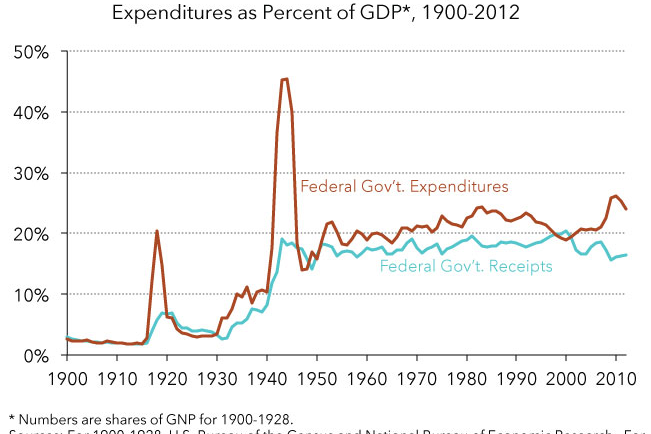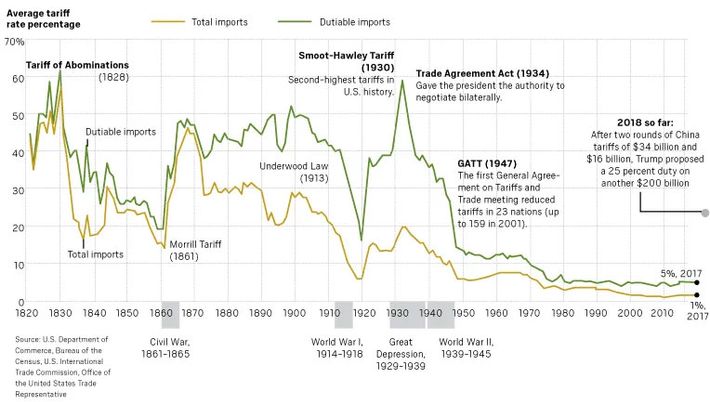Donald Trump has grown more and more fixated on tariffs, which he appears to assume, opposite to the consensus amongst economists, are borne by foreigners. Trump understands at some stage that economists and most enterprise house owners disagree with him, however somewhat than paper over their dispute, he insists — his insistence being an indicator of the depths of his conviction — upon attempting to win them over to his facet.
In a speech to the Detroit Financial Membership, Trump made a outstanding, error-strewn diatribe in favor of tariffs:
In beneath a minute, Trump claimed, first, that when it relied on tariffs for income, the US (by which he means the federal government) had extra wealth (by which he means income) than at some other time in its historical past. “We had a lot cash,” he stated, “all from tariffs; there was no earnings tax.”
The reality is the other. Earlier than the creation of the earnings tax, the US did depend on tariffs as a serious funding supply. However the authorities collected far much less income:
Illustration: Tax Basis/A graph of Federal Authorities Receipts and Expenditures
Trump proceeded to inform his viewers that, opposite to in style perception that the U.S. imposed a tariff that worsened the Despair, in actual fact tariffs solely got here into use in 1932.
That can be false. The Smoot-Hawley tariff was carried out in 1930. One in every of its main results was to set off retaliatory tariffs by buying and selling companions, thus hurting American producers in addition to customers. The financial contraction was underway when the tariff was carried out, however financial circumstances grew a lot worse after it was put in place.
Illustration: Press-Telegram
Moreover, Franklin D. Roosevelt liberalized commerce after taking workplace in 1933. Tariff charges plunged because the economic system recovered from the Despair. To make certain, tariffs will not be even near the primary motive the economic system recovered, however Trump’s perception that they had been hiked solely starting in 1932 is the reverse of what occurred.
Trump, in some methods, is obsessive about an financial agenda of which his understanding is so rudimentary he will get a very powerful historic information about it backward.
Many Republican elites imagine that Trump both doesn’t imply it when he presents tariffs as an financial cure-all or that they’ll discuss him out of it after the election. However Trump would have unilateral energy to impose tariffs via govt motion; he doesn’t want Congress. And the concept that a lifelong megalomaniac who lacks a primary understanding of presidency will in some way turn out to be amenable to motive is, at greatest, optimistic.
Conservatives don’t fear about Trump’s undisguised authoritarian ambitions as a result of they assume he’s going to make use of his powers for insurance policies they imagine in. Partially, that’s true. However Trump can be decided to implement a tariff agenda most conservative elites perceive would have disastrous ramifications. Possibly the authoritarianism, criminality, and racism aren’t price it?





